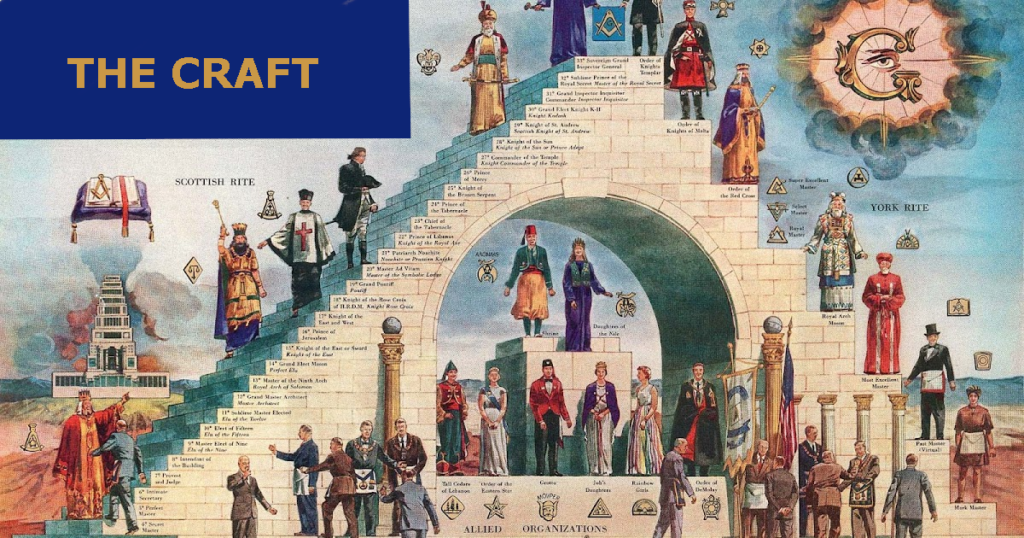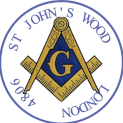
Interrelation of Masonic Orders
Freemasonry begins with “The Craft” from which all Freemasonry has evolved and becoming a member of the Craft enables you to call yourself a Freemason. Freemasonry is a fraternity that aims to promote personal development, moral and ethical values, and charitable and community service and dates back to at least the late 16th century. It is believed to have evolved from the guilds of stonemasons who built the great cathedrals and castles of the Middle Ages.
The Craft is governed by the United Grand Lodge of England, based at Freemasons’ Hall, Great Queen Street, London. (The UGLE also oversees the sister organisation, Supreme Grand Chapter; under which the Royal Arch Degree is worked.)
Having become a Freemason, many members chose to compliment or enhance their Masonic interests by joining the “Companion Orders”. Freemasons have included George Washington, Winston Churchill, Walt Disney, Wolfgang Mozart, Benjamin Franklin, Buzz Aldrin; Rudyard Kipling, Sir Arthur Conan Doyle, ‘Buffalo Bill’ Cody; John Wayne, Henry Ford, Andre Citroen, Peter Sellers, Clark Gable, Sir Ernest Shackleton, Sir Richard Burton, Edward Jenner, Dr. T. J. Barnardo, Sir Alexander Fleming,
Joseph Lister, Ian Fleming, Captain Robert Falcon Scott, Duke Ellington, the Duke of Wellington and His Majesty King George VI to name just a few.
The Craft was founded in London in 1717 as a way of producing charitable and character-forming ideals and binding men in friendship and fellowship and within just 20 years, it had spread across the globe, becoming particularly endemic in the new American nation. Freemasonry played a significant role in the American Revolution, as many of the founding fathers were members of the fraternity. The Masonic networks were very prevalent during the British Empire and during Napoleonic times, the Craft became a increasingly authoritarianism and a cover for revolutionary conspiracy. The Catholic Church fearing the spread of Freemasonry which threatened the Catholic empire, portrayed Freemasonry as a den of devil-worshippers, leading to the persecution of Freemasons and the Knights Templar and it was so prevalent that Hitler, Mussolini and Franco considered the Lodges to be a threat and to spread the diseases of pacifism, socialism and Jewish influence, and they were publicly crushed although secretly Hitler studied the Craft in detail.
Freemasonry has its own unique system of symbols, which are used to convey moral and ethical lessons. These symbols are derived from the tools of the stonemason’s trade and include the square, compasses, and the plumb line. The fraternity also has its own system of rituals, which are used to teach moral and ethical values. It is not a religion or substitute for religion although to become a Mason a man must profess a belief in God or a guiding hand for the universe.
During the 19th and 20th centuries, Freemasonry continued to grow and evolve. The fraternity played a significant role in the development of the modern welfare state, as many of its members were active in social and political reform movements.
Within Freemasonry, emphasis is placed on personal self-development and the fostering and cultivation of skills, the acquisition of knowledge, and the broadening of perspectives.Freemasons share common values and participate in rituals that emphasize brotherhood, integrity, and charitable work. Although they come from diverse backgrounds, they are united by a belief in a higher power and a commitment to improving themselves and society.
Masons contribute, not necessarily monetarily, but by living their lives in such a manner that the world is better just because they live in it. Most men get the realisation that it is not necessary to receive something tangible for every good act or deed performed.
A Freemason’s mission is to promote personal growth and improve the lives of others and to take responsibility for the well-being of our brothers, our families, and the community as a whole, valuing respect, kindness, tolerance, and our differences – religious, ethnic, cultural, generational, and educational, and strive for harmony in our individual lives, in the lodge, and in the global community.
Masonry is a community of men and their families who share similar beliefs and values. The fraternity finds it important to connect with other men of honour, compassion, love, trust, and knowledge, regardless of their race, colour, religious beliefs, political views, sexual orientation, physical ability, citizenship, or national origin. We are friends and brothers, and are connected through this vital and uplifting organisation of moral men. The continuing pursuit of truth, knowledge, ethics, and leadership skills is promoted in Freemasonry to brings more meaning to our lives and the lives of others, giving the opportunity to develop leadership and organisational skills, and builds self-discipline through commitment and self-confidence.
Freemasons value tradition, history, and timeless wisdom and their traditions and core values of our fraternity are meaningful today and will endure for centuries to come because of the direct impact of Freemasonry in our community, through our charities, and on a personal level.
